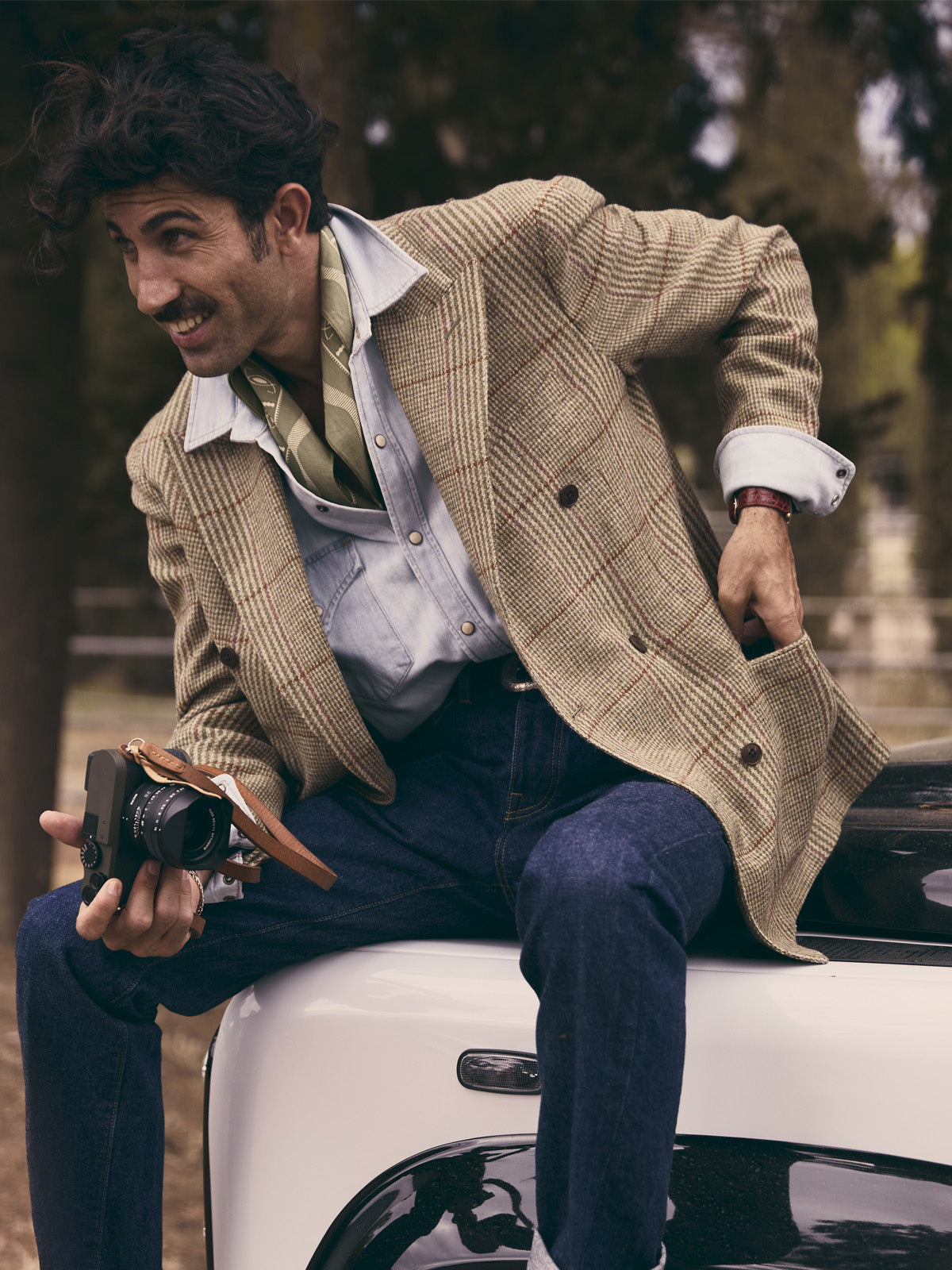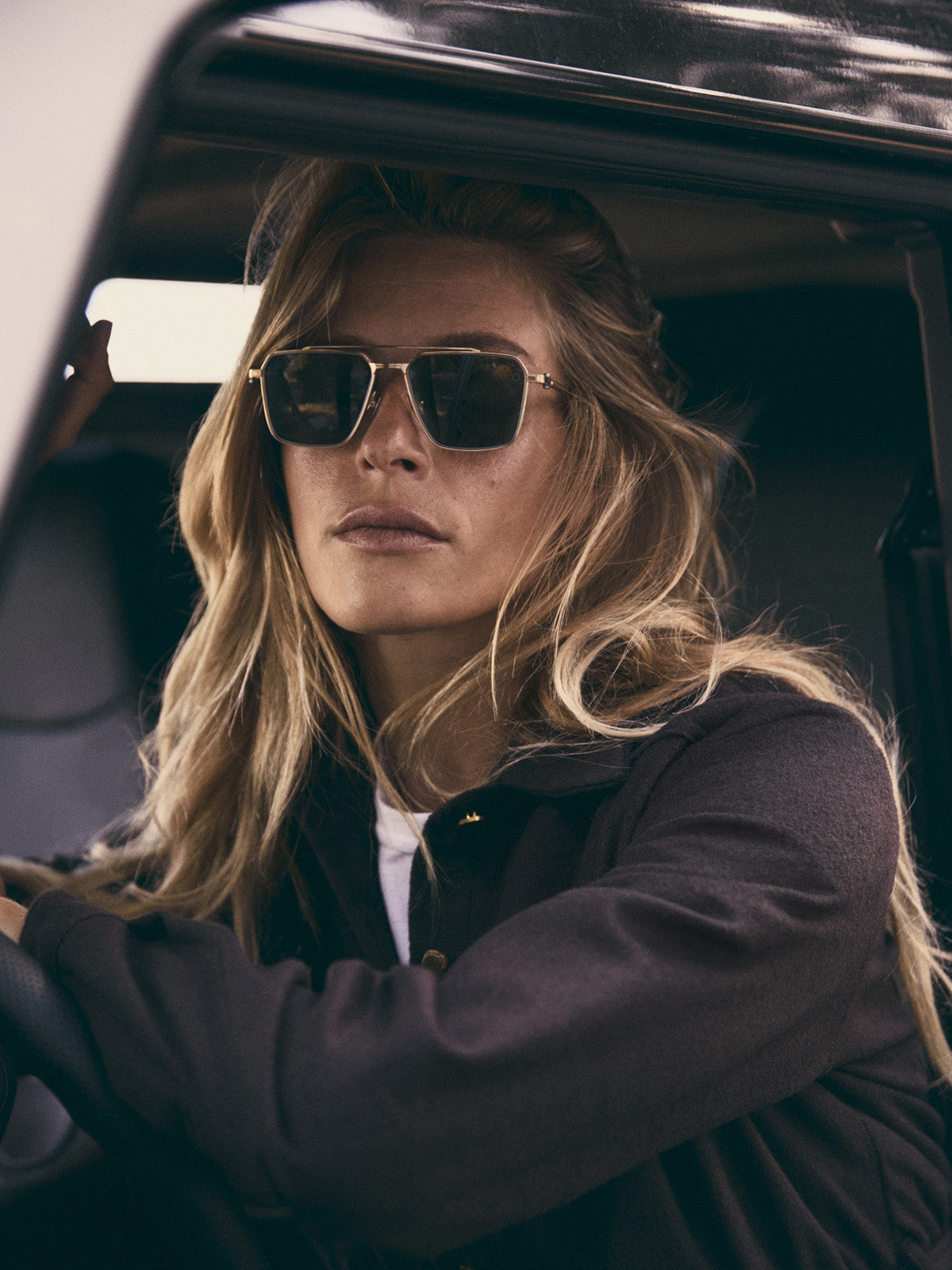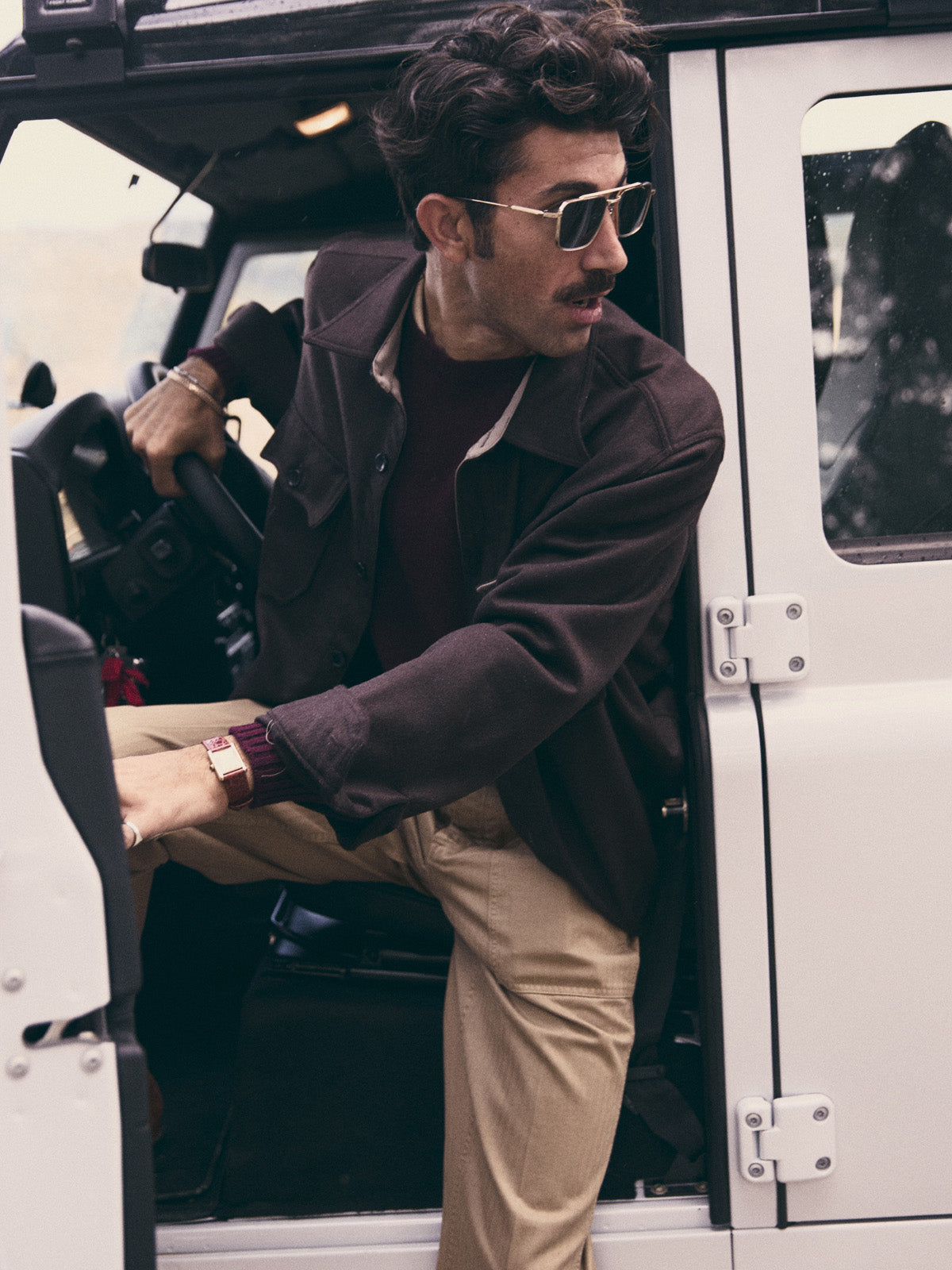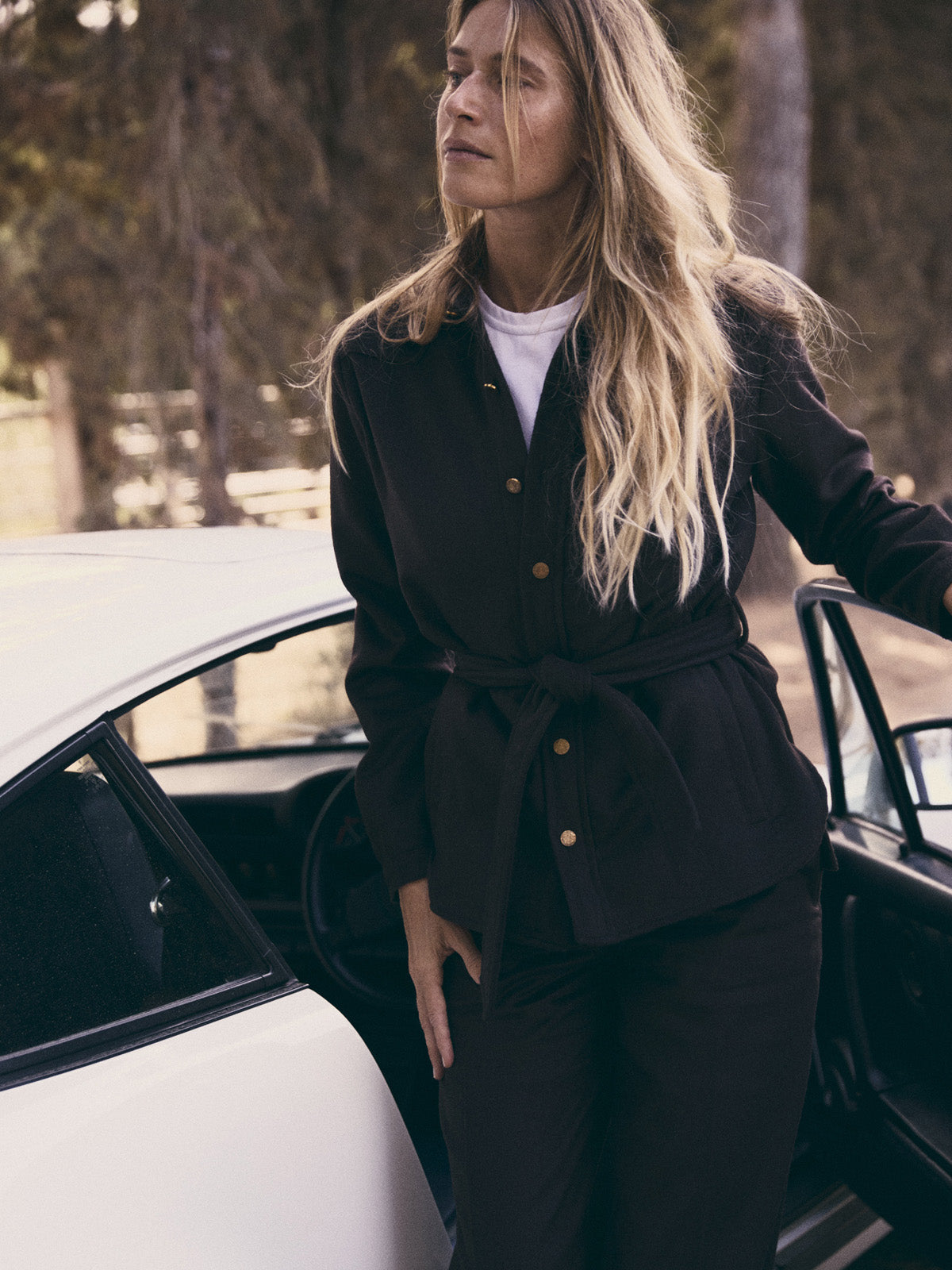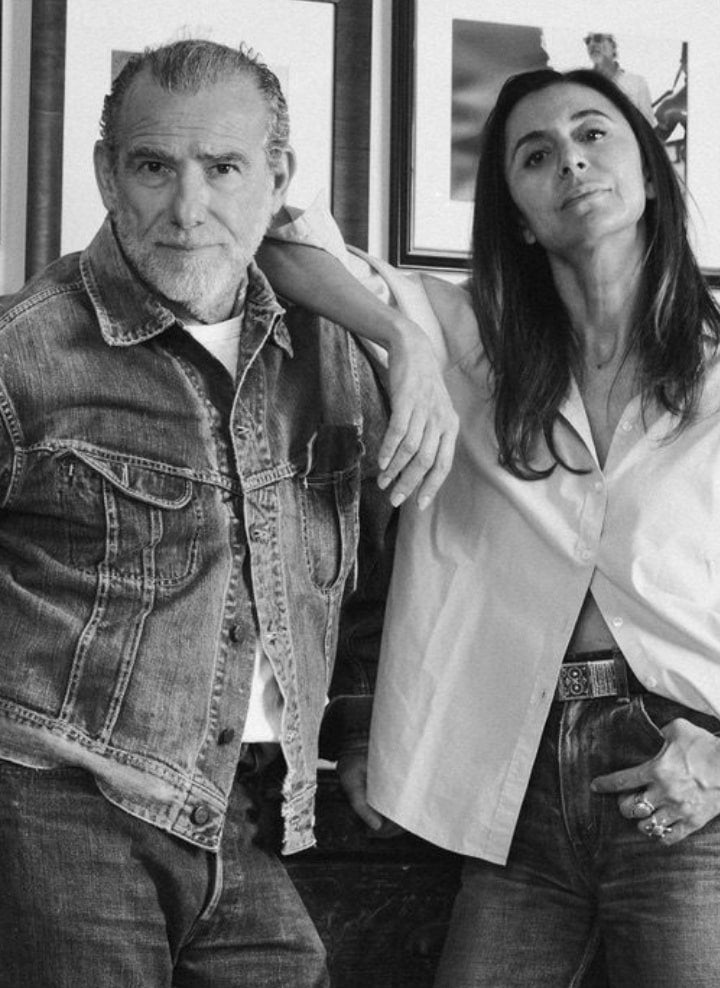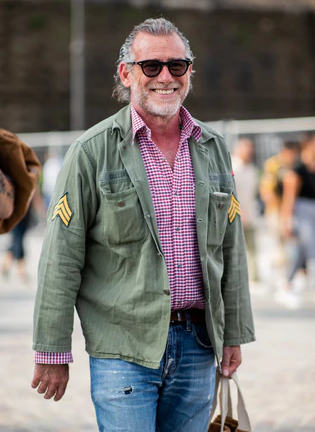A Rose is a Rose
Rosa Fanti is solid roots, thoughtfulness, and everyday elegance. She's a smile that opens up to the world. The Fortela style interpreted by a woman who has made authenticity her signature.
A life between Milan and Romagna, between the countryside and Michelin-starred restaurants, between tailored jeans and beloved vineyards. Rosa Fanti, an agricultural entrepreneur and the creative and managerial mind behind many of her husband Carlo Cracco's projects, opened the doors of her farm in Santarcangelo for an exclusive photoshoot with Fortela, a brand she loves for its connection to the principles she has always been dedicated to: truth, beauty, and quality. And that "Romagna" spirit also flows through the veins of the brand's designers, Alessandro Squarzi and Alessia Giacobino. Rosa told us what it means to her today to carefully choose how she lives, works, and dresses. A philosophy of life that unites taste and vision, food and nature, fashion and authenticity.
Let's start here: the Fortela shoot is set on your farm. Can you tell us how it came about?
Five years ago, my husband and I purchased an estate in Santarcangelo di Romagna: Vistamare spans 16 hectares, 6 of which are dedicated to a vineyard that follows the Romagna tradition. We'd been looking for a place like this for a long time—we were thinking of Tuscany, given Carlo's passion for wine and olive oil—but when this opportunity came along, right where my family lives, we had no hesitation. Beyond the beauty of the place, there was a very strong emotional connection. It was the land I wanted to return to, and I didn't know it.
What does Romagna represent for you today?
My roots. My family, my lifelong friends. But also my personality: my cheerfulness, my ability to enjoy simple things, my energy. Milan inspires me, I adore it, it has given me so much, but I always need this dual dimension. The city to create, the countryside to rediscover a deeper connection. As you grow, you learn to appreciate what you wanted to leave behind as a girl.
How did you discover Fortela? And what ties you to the brand?
I already knew Alessandro Squarzi and Alessia Giacobino through mutual friends here in Romagna. But I really got to know them in Milan: they too are deeply connected to their roots. I have to say, I really appreciate it when you meet someone who, like you, identifies with this humanity. You find this way of life even in those who live in a big city, and it shows in them. Alessandro loves his land, horses, and the sea. Alessia has a sunny and engaging style, and she too loves nature. I discovered the Fortela brand in Milan, walking past the store. I was immediately struck by it: a style you can wear every day, but with a character all its own. There's an idea of beauty that's subtle, that reflects me. And then I immediately understood and loved the quality inherent in the brand. The fabrics speak: you touch them, you wear them, and you understand that there's authentic research behind it. It's the same principle that applies in my world, that of food and farming. A fabric, like a raw material, must excite you at first sight. It must have consistency, depth, and personality. It must be well-made: there's no denying it, you can taste it, like when you taste something grown with love, in a beloved and protected land.
Do you think there's a strong parallel between a certain type of fashion and high-end gastronomy, then?
Of course. Very strong. As in cooking, in fashion too I seek simplicity, but with the utmost care. Let me explain: even a Michelin-starred dish can "be" simple, if there's actually attention, quality, and the right choice of ingredients behind it, and you can taste it. The same goes for a piece of clothing: maybe it's a white shirt, but if it's made from a certain cotton, with a certain hand, a well-proportioned cut, everything changes. It's a quiet luxury, which for me today has enormous value.
Do you manage the Vistamare company?
Yes, personally. I'm a fully-fledged agricultural entrepreneur. We just finished the renovations and will soon be opening a farmhouse: hospitality, catering, and tastings. Everything is tied to our produce: vegetables, oil, and wine. I also oversee the event planning and collaborations with Carlo. The three of us take care of everything: Carlo, me, and our longtime collaborator Alessandro. It's a conscious choice, perhaps a little unconventional, but it allows us to be consistent with our vision. Alessandro and Alessia with Fortela also have this direct, meticulous, and tailored approach. And so, Carlo and I only take on projects we truly feel we want to pursue. Our "countryside adventure" is one of these: it was Carlo's dream because he's a huge wine enthusiast, so much so that our restaurant has an incredible cellar with over 2,000 wines. The restaurant in the Galleria has won several awards, including the Grand Award—the highest honor awarded by Wine Spectator—as one of the best wineries in Italy. For Carlo, wine has always been a special part of the gastronomic experience: like "the essential accessory to complete the look," if we were talking about fashion! To complete the circle, he wanted to have his own production: at the company we now produce organic wines, showcasing native Romagna grape varieties, such as Trebbiano Fiammarossa. And this is once again a comparison with Fortela fashion: you know what you're serving at the table, because you have control of the supply chain, because you serve what you've produced. So the garments I wore in this shoot have a "pedigree" that reflects the designers' passions and their sartorial, handmade approach.
This is also a sustainable choice in the truest sense of the word…
Yes, we don't let trends dictate our approach. Our oil, our vegetables, are a conscious, sustainable choice that truly transcends current gastronomic fads. It's always part of that quality theme we mentioned earlier. Both Carlo and I choose projects that represent us. Fortela is one of these: authentic, rooted, and free. It doesn't follow trends; it has a precise identity, just like us.
How has your style evolved over time, as a woman, entrepreneur, and mother?
There's been an evolution in my way of dressing, obviously, over the years. Today, the way I dress reflects my soul. I prefer comfort: I have two sons to look after, and I'm always on the run, between the city and the countryside. But don't get me wrong, I really like fashion and am passionate about it, but my look is simple, with a few sophisticated touches. As a woman who loved heels, today I prefer comfortable but well-made pieces. I love the feel of beautiful, breathable fabric. My wardrobe has become more streamlined, but more conscious. I buy less, but I choose better.
What did you wear for the photoshoot?
White jeans with a pink Western-style shirt, a long, loose-fitting, country-inspired dress—a beautiful purple hue—with a Navajo-style belt, and a black dress with lace details on the sleeves. Then there were plaid cowboy shirts and gaucho boots. In another shot, I wore super-soft honey-colored suede pants paired with a light blue poplin shirt, also a Western-style one, with mother-of-pearl buttons. These are all looks that perfectly capture who I am today and express practicality and ease, but with a refined, never predictable touch.

